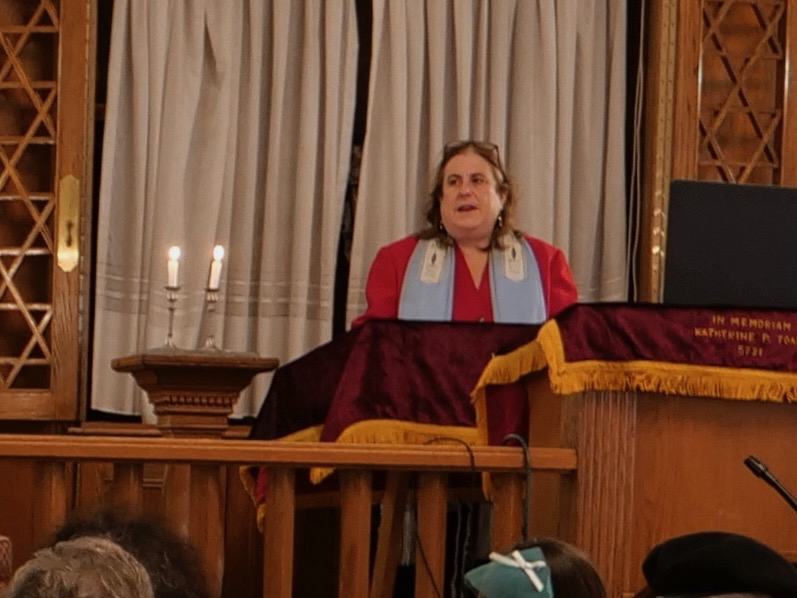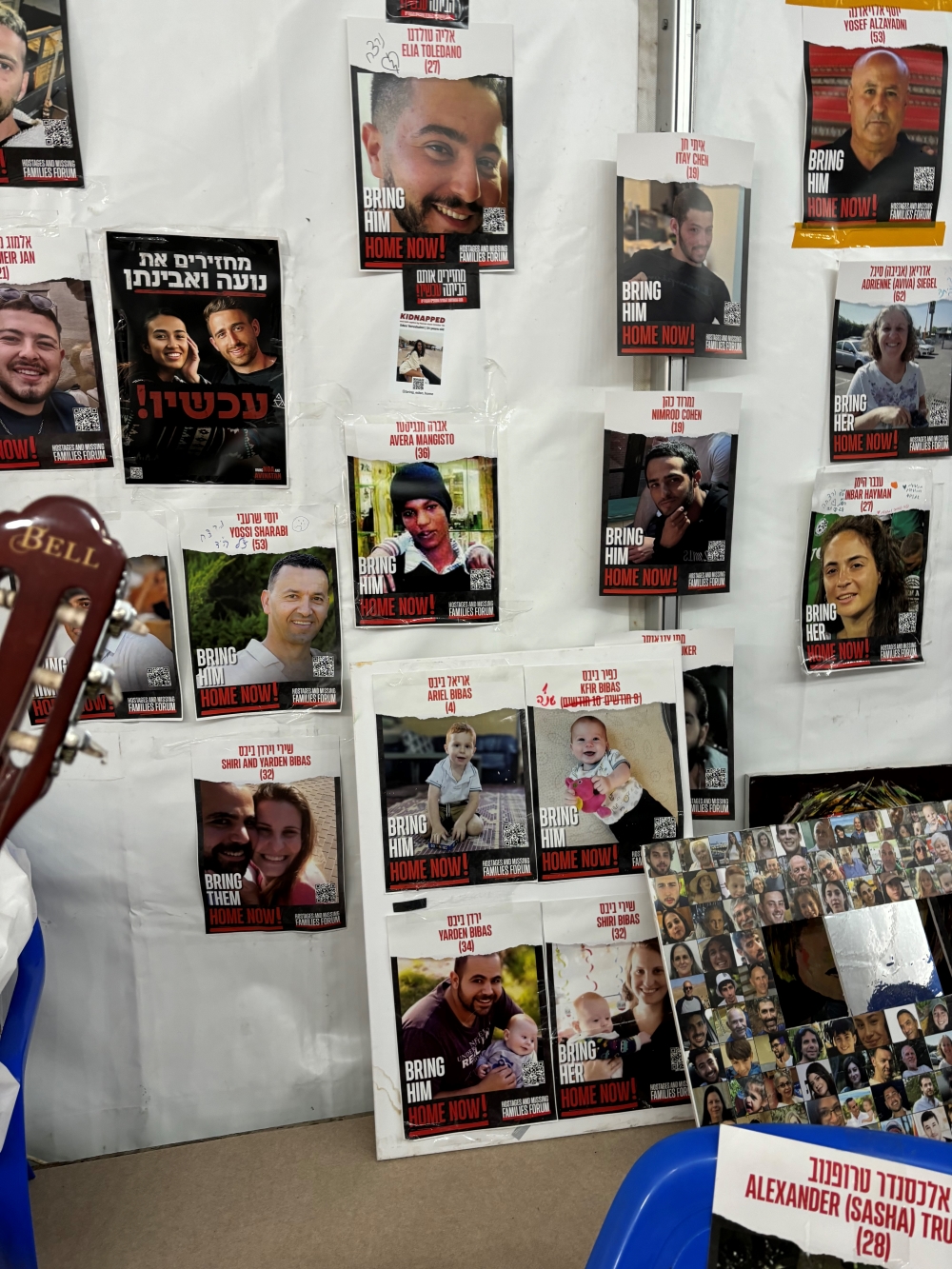Rabbi Estelle Mills, who leads Plymouth’s local synagogue, Congregation Beth Jacob, last week traveled with a group of more than 30 rabbis from around the U.S. on a solidarity mission to Israel. Mills is touring several parts of the country on the 10-day trip and will share some of her experiences on the Plymouth Independent site. This is her first journal entry.
As I prepared to board the plane to Israel on Thursday with nearly 40 other rabbis from across the United States, I acutely felt that this visit was different. As one colleague phrased it, this time I was going to bear witness, to support survivors, to hear stories, to volunteer, to show solidarity, and to shed tears.
I felt different about this trip even while waiting at Logan for my flight to leave. I was more aware of the security personnel armed with machine guns standing around the El Al departure gate and yet, I also so strongly felt the pull to return and be there to support my family members and all those living there. I had without hesitation jumped at the chance to be part of a solidarity mission and I was not alone. My plane was absolutely full, with Israelis returning home, Americans going to visit sons and daughters living there, and others like me who wanted to show support and bear witness to how Oct. 7 has forever changed Israel.
I was touched from the moment I landed with how thankful Israelis are for my making the nearly 10-hour flight. “Thank you for coming” was said to me by strangers passing me as I made my way through Ben Gurion airport. Those are words I have heard frequently since, from those passing me in the street to those serving me food.
I was also struck with how eerily empty the usually bustling airport was. Our El Al flight was the only one that arrived in the entire airport and as I made my way towards customs, I saw poster after poster of the hostages with red and black “bring them home” banners covering any space where there wasn’t a poster. As my cousins drove me to their home to spend Shabbat, I saw the posters and banners at every bus stop and on fences and billboards. Israeli flags hung from nearly every balcony and window.

The more than 100 individuals who remain hostages, taken from their homes or from the Nova music festival, are the focus of the entire country. Life goes on here. Many people have returned to their jobs, to school, but all in the shadow of Oct. 7. The faces of the hostages and their stories are everywhere. The mantra to “bring them home” is chanted on street corners, and every Saturday evening from the main square of nearly every city.
There are also those who have been living in hotels in the center of the country since Oct. 7. What has not been widely reported is that an additional 150,000 Israelis who live in the northern part of the country near the Lebanon border have also been evacuated. My cousin’s son who wants to return to his home in the north has been cautioned not to. And when I check in to my hotel, I realize the hotels are now transplanted neighborhoods, filled with children playing soccer or with Barbies in the hall. The hotel has become their home and they run through the halls with their dogs while their mothers carry the family’s laundry as they make their way to the laundry room. Hotel doors are decorated with the kid’s art. The children are going to new schools, on school buses that pull up to the hotel door each morning, not knowing when it will be safe to return to their homes. But those evacuated out of concern for safety are the lucky ones -they have homes they will return to one day. So many others have lost everything, and many have no homes to return to.

